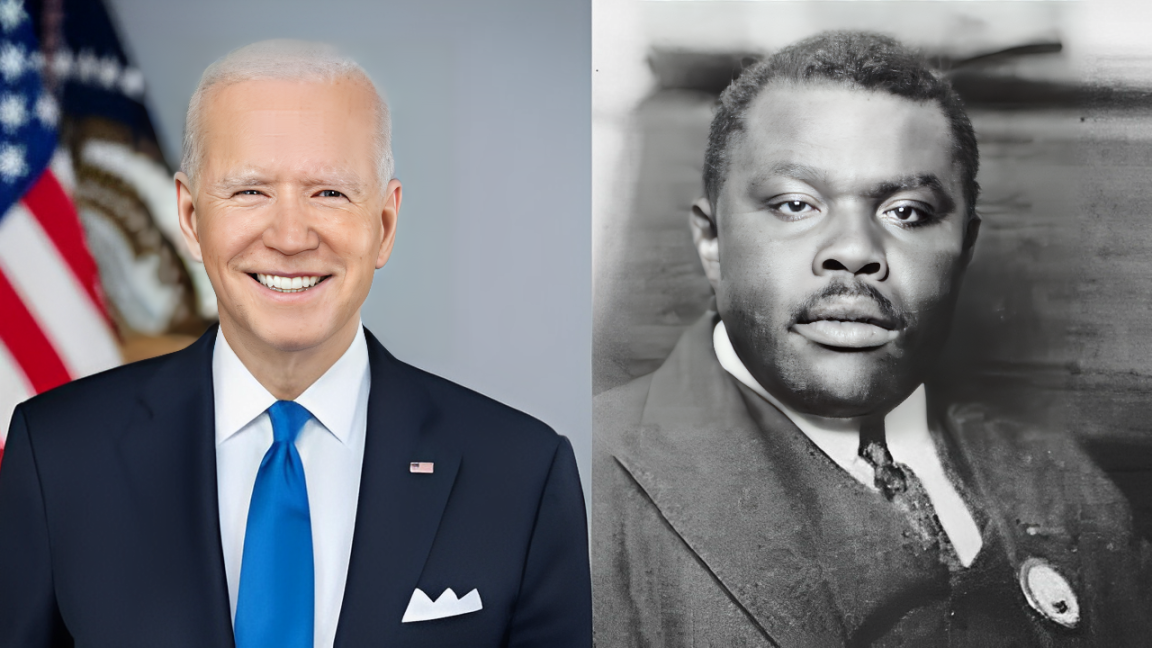President Joe Biden has made headlines by granting a posthumous pardon to Marcus Garvey, a prominent Black nationalist leader whose influence shaped civil rights icons like Malcolm X and Martin Luther King Jr.
This decision acknowledges Garvey’s significant contributions to racial pride and justice while addressing a conviction widely regarded as unjust.
In the 1920s, Garvey was convicted of mail fraud, a charge many believe was politically motivated to suppress his activism.
As a powerful voice for Black empowerment, Garvey’s movement inspired millions, calling for racial dignity and economic independence.
After his conviction, Garvey was deported to Jamaica, where he continued his work until he died in 1940. Biden’s pardon not only clears Garvey’s name but also reinforces the importance of his legacy in the fight for equality.
This move comes as Biden’s presidency nears its end, marking yet another historic moment in his tenure.
Along with Garvey’s pardon, Biden also granted clemency to advocates fighting for immigrant rights, gun violence prevention, and criminal justice reform.
These decisions reflect his broader efforts to address systemic injustices and recognize individuals who have driven meaningful change.
The pardon for Marcus Garvey aligns with long-standing calls from congressional leaders and civil rights advocates, who argued that the case against Garvey was more about silencing a revolutionary figure than delivering true justice.
Garvey’s work, including founding the Universal Negro Improvement Association, was groundbreaking in its time and remains a source of inspiration for many today.
In his final days in office, Biden has continued to use his presidential powers to address issues of justice and fairness.
Read More:
- Is Western Massachusetts Truly Overlooked? The Debate Heats Up on Beacon Hill!
- Gov. Sarah Sanders Begins 2026 Re-election Campaign with a TV Ad and Over $1 Million Raised!
He recently commuted the sentences of nearly 2,500 individuals serving time for nonviolent drug offenses, demonstrating his commitment to reforming the criminal justice system.
Additionally, Biden commuted the sentences of 37 individuals on federal death row, replacing their death penalties with life imprisonment.
This decision stands in stark contrast to his successor, Donald Trump, who oversaw an unprecedented number of executions during his first term.
A presidential pardon, such as the one given to Garvey, completely erases guilt and punishment, offering a clean slate. By contrast, a commutation reduces or eliminates a sentence but does not clear the individual of wrongdoing.
Biden has issued more pardons and commutations than any other U.S. president, solidifying his legacy as a leader who prioritized second chances and systemic change.
As Biden’s term concludes, it remains uncertain whether he will grant further pardons, particularly those that could provoke political controversy.
Regardless, his decision to honor Marcus Garvey cements a commitment to recognizing historical injustices and elevating the stories of those who fought for equality.

